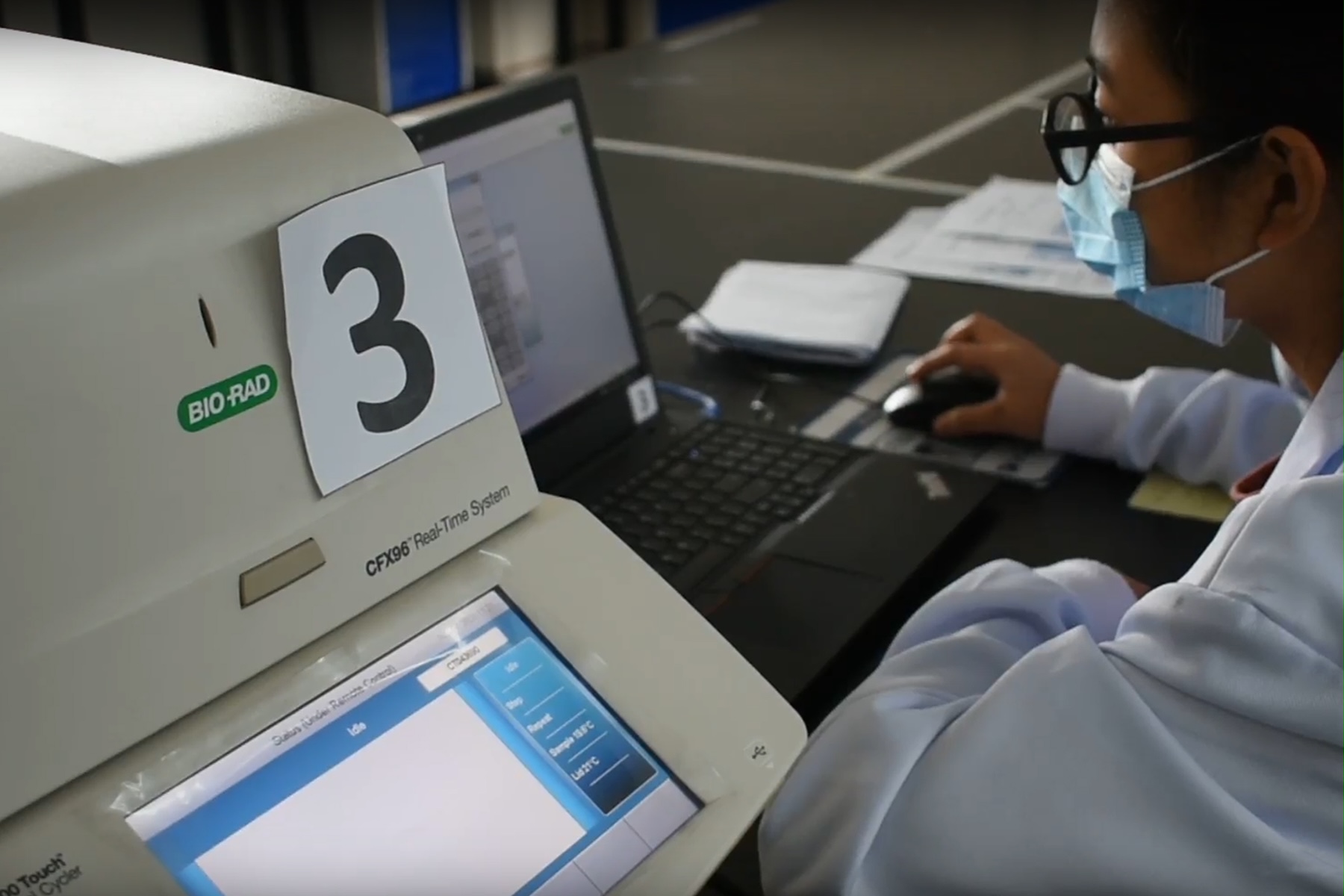
POWERFUL MACHINE Scientists — all in their 20s and 30s — use the NovaSeq 6000, a $1-million genome sequencing machine to conduct large-scale “whole-genome sequencing” on specimen samples that carry the SARS-CoV-2, the causative agent of COVID-19. CONTRIBUTED/ UP PHILIPPINE GENOME CENTER
MANILA, Philippines — The Philippine Genome Center (PGC) has proposed to procure two additional genome sequencing machines and boost the country’s capacity to detect COVID-19 variants.
During the Laging Handa public briefing on Saturday, Health Undersecretary Maria Rosario Vergeire said each of the machines has a capacity to test up to 750 samples for genome sequencing.
“Tayo ngayon ay may move na para bumili pa ng additional machines na ganito para mas madagdagan. Ang mga machine na ito ay may capacity of testing 750 samples per run, so ito ‘yung ating proposal ng PGC,” she said.
(There are moves already for the procurement of additional machines. These machines can test 750 samples each per run, so that is the proposal of the PGC.)
At present, the country can only test 750 samples per batch for genome sequencing. Results are being released per week.
Vergeire said that aside from the PGC, the University of the Philippines National Institutes of Health and the Research Institute for Tropical Medicine can also test samples but only with smaller machines that have a lower testing capacity.
On Friday, Vergeire said the Department of Health already has plans to enable more facilities in other parts of the country to conduct genome sequencing needed to detect SARS-CoV-2 variants of concern and variants under investigation.
Vergeire revealed this after Dr. Rontgene Solante, head of the Adult Infectious Diseases and Tropical Medicine unit at the San Lazaro Hospital and member of the country’s Vaccine Expert Panel, pointed out that the number of COVID-19 samples being subjected to genome sequencing in the country is “very low.”
The Philippines as of May 3 has so far reported a total of 1,075 B.1351 variant cases (first detected in South Africa), 948 B.1.1.7 variant cases (first detected in the United Kingdom), 157 P.3 variant cases (first detected in the Philippines), and two P.1 variant cases (first detected in Brazil).

